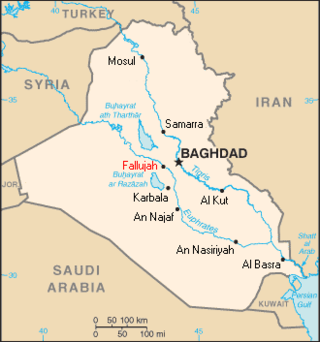
The Tosafot,Tosafos or Tosfot are medieval commentaries on the Talmud. They take the form of critical and explanatory glosses, printed, in almost all Talmud editions, on the outer margin and opposite Rashi's notes.

Hai ben Sherira better known as Hai Gaon, was a medieval Jewish theologian, rabbi and scholar who served as Gaon of the Talmudic academy of Pumbedita during the early 11th century. He was born in 939 and died on March 28, 1038. He received his Talmudic education from his father, Sherira ben Hanina, and in early life acted as his assistant in teaching. In his forty-fourth year he became associated with his father as "av bet din," and with him delivered many joint decisions. According to Sefer HaKabbalah of Rabbi Abraham ben David (Ravad), he was the last of the Geonim.
Bezalel ben Abraham Ashkenazi was a rabbi and talmudist who lived in Ottoman Israel during the 16th century. He is best known as the author of the Shitah Mekubetzet, a commentary on the Talmud. Among his disciples were Isaac Luria and Solomon Adeni.
Yom Tov ben Abraham of Seville commonly known by the Hebrew acronym Ritva, was a medieval rabbi and rosh yeshiva of the Yeshiva of Seville, known for his commentaries on the Talmud.

Josippon is a chronicle of Jewish history from Adam to the age of Titus. It is named after its supposed author, Flavius Josephus, though it was actually composed in the 10th century in Southern Italy. The Ethiopic version of Josippon is recognized as canonical by the Ethiopian Orthodox Tewahedo Church and the Eritrean Orthodox Tewahedo Church.
Tobiah ben Eliezer was a Talmudist and poet of the 11th century, author of Lekach Tov or Pesikta Zutarta, a midrashic commentary on the Pentateuch and the Five Megillot.
Menahem ben Solomon ben Isaac was a rabbi and author of the Sekel Ṭob and the Eben Boḥan.
Nathan ben Jehiel of Rome was a Jewish Italian lexicographer. He authored the Arukh, a notable dictionary of Talmudic and Midrashic words, and consequently he himself is often referred to as "the Arukh".
Meshullam son of Jacob also known as Rabbeinu Meshullam hagodol was a Franco-Jewish Talmudist of the twelfth century CE. He led a Talmudic Yeshiva in Lunel which produced several famous scholars, and was an intimate friend of Abraham ben Isaac, Av beth din of Narbonne, who addressed to him several responsa, and spoke of him in high terms. His Talmudic decisions are quoted in Sefer ha-Terumot.
Shem Tov ben Abraham ibn Gaon was a Spanish Talmudist and kabbalist.
Solomon ibn Verga or Salomón ben Verga was a Spanish historian, physician, and author of the Shevet Yehudah.
Simeon ben Zemah Duran, also Tzemach Duran, known as Rashbatz (רשב"ץ) or Tashbatz, was a Rabbinical authority, student of philosophy, astronomy, mathematics, and especially of medicine, which he practised for a number of years at Palma de Mallorca. A major 15th century posek, his published decisions in matters of halakha have been widely quoted in halakhic literature for hundreds of years.
Judah ben Asher was a German Talmudist and later rabbi of Toledo, Spain, son of Rabbenu Asher and brother of Jacob ben Asher.
Samuel ben Hofni. He was the gaon of Sura Academy in Mesopotamia ("Babylonia") from 998 to 1012.
Judah ibn Verga was a Sefardic historian, kabbalist, perhaps also mathematician, and astronomer of the 15th century. He was born at Seville and is supposed to have been the grandfather or father of Solomon ibn Verga, author of the Scepter of Judah. It is this work that furnishes some details of ibn Verga's life.
Judah ibn Shabbethai was a Jewish poet in al-Andalus at the end of the 12th century. He has been identified with the physician Judah b. Isaac of Barcelona, who is praised as a poet by Yehuda Alharizi, but he may also have lived at Burgos.
Nathan ben Isaac ha-Kohen ha-Babli was a Babylonian Jewish historian of the 10th century. He was the author of a history of the exilarchate that gives many interesting details in regard to the exilarchs, particularly his contemporary Mar Ukba. Extracts from this history were published by Samuel Shullam in his edition of Zacuto's Yuḥasin, as well as by A. Neubauer. Shullam's work is the only surviving source for Nathan's history other than an Arabic fragment published by Israel Friedlander.
Miles of Marseille was a Provençal-Jewish physician and philosopher of the Middle Ages. He was born at Marseille around 1294. In some manuscripts he is designated by the name "Bongodos," the Provençal language equivalent of "ben Judah."
Samuel ben Jacob ibn Jam or Samuel ben Jacob Jam'a was rabbi of the North-African community of קאבס (Gabès?) who flourished in the 12th century. He was on intimate terms with Abraham ibn Ezra, who dedicated to him his Ḥai ben Meḳiẓ and mentioned eulogiously three of his sons — Judah, Moses, and Jacob.

The Baraita of the Forty-nine Rules is a work of rabbinical literature which is no longer in existence except in references by later authorities. It is mentioned or cited by Rashi, the Tosafists, Abraham ibn Ezra, Yalḳut, and Asher ben Jehiel. Rashi on Exodus 26:5, Yalkut Shimoni Genesis 61, calls it "Midrash"; Rashi on Exodus 27:6 calls it "Mishnah".



